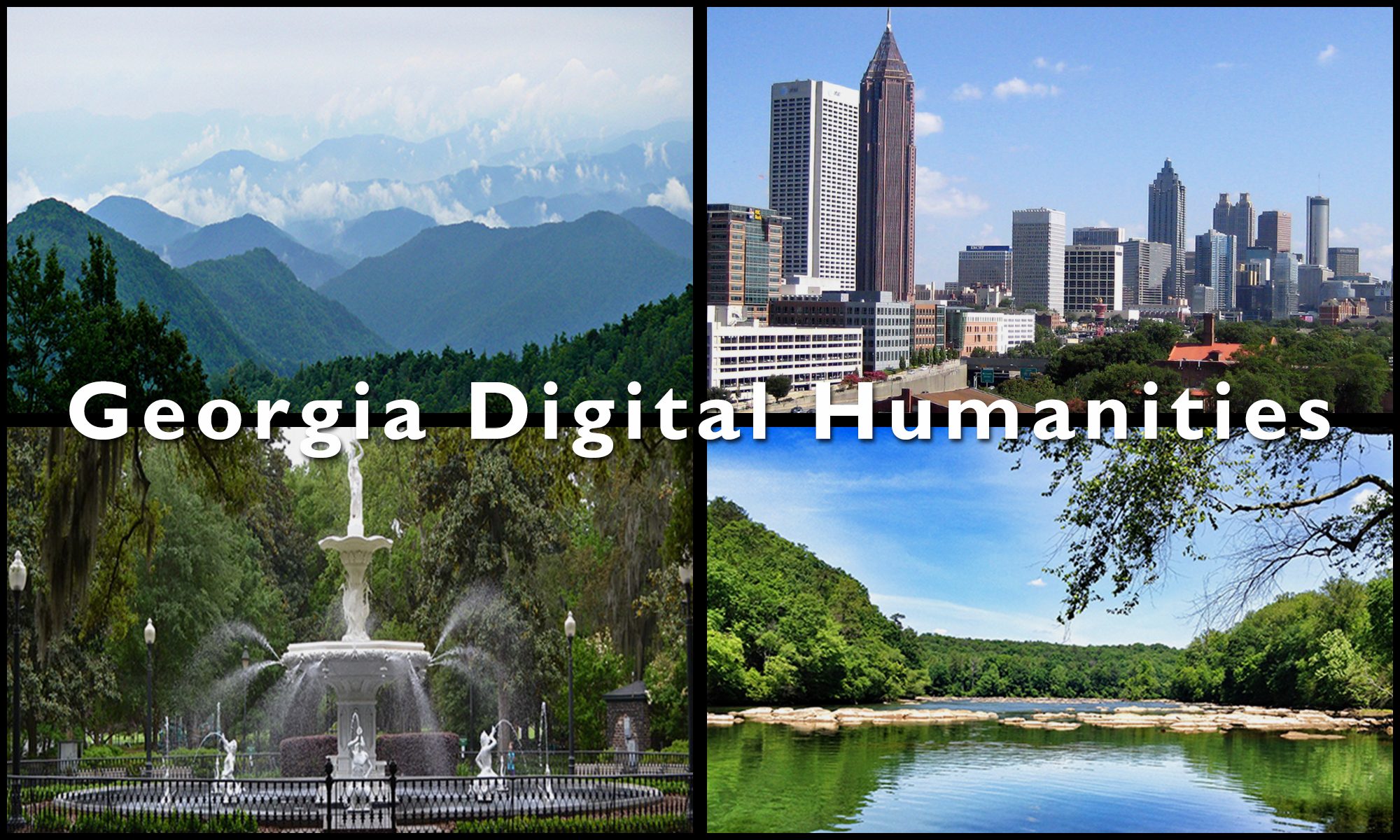This calendar includes workshops and events that might be of interest to the digital humanities community in Georgia.
Brandon Walsh of UVA’s Scholars Lab joins us to talk about graduate education in DH and his experiences in the field.
Miriam Posner will be speaking with us over Skype about her experiences as a leading light in the DH landscape.
Melissa Dinsman, author of the LARB series on DH, will be joining us via Skype to talk about DH within the public context.
Co-sponsored by the Emory Center for Digital Scholarship and the Disability Studies Initiative, the Digital Publishing in the Humanities initiative presents “Cultural Accessibility: Digital Media, Disability Cultures, and Academic Responsibility.”
The rhetoric of digital media is usually one of increased access, opportunity, or transparency. However, digital media can not only open, but close off access. In this presentation, Dr. Elizabeth Ellcessor explores the ways in which digital technologies have both produced and prevented access to culture, information, and citizenship for people with disabilities. She illustrates how disabled people have innovated in the face of these barriers, and suggests that these workarounds and culturally specific media productions hold value for designing better media and technologies that attend to diverse access conditions rather than taking for granted normative bodies or practices. Finally, she turns a critical lens to the growing reliance on digital media in the management of the university, proposing that attention to access needs become one of our responsibilities as scholars and teachers.
Elizabeth Ellcessor is assistant professor in media studies at the University of Virginia. She is the author of Restricted Access: Media, Disability, and the Politics of Participation (NYU Press, 2016), and co-editor of Disability Media Studies (NYU Press, 2016). Her work focuses on media access, disability and embodied difference, and the public.
Join us for a conversation with Tracy Fullerton, Director of the Game Innovation Lab at USC and creator of the Walden game, which recently won Game of the Year and Most Significant Impact at Games for Change. She will talk about her experience making an “academic” game, and her time as Director of the USC Games Program.
The Center for Faculty Development and Excellence and the Digital Publishing in the Humanities initiative invite you to attend the third installment in the What is Your Project? Workshop series at 9:00 AM on April 10, 2018, in Woodruff 312. Coffee and pastries will be available at 8:45 AM.
The featured speakers are Terence Smyre, Manifold Digital Projects Editor at University of Minnesota Press, and Jason Weidemann, Editorial Director at the University of Minnesota Press. Manifold is an iterative, collaborative, open-source platform for monograph publishing developed at the University of Minnesota Press. They will be introducing the workshop participants to Manifold through a guided tour and demonstrations of the platform and will also highlight a few live projects.
We hope that you are able to join us. To RSVP, please email Lucy Webster at lgwebst@emory.edu.
Although many Vatican manuscripts have enjoyed a long history of dedicated scholarship, others remain unstudied by scholars who have no way of knowing that the manuscripts even exist. METAscripta, meaning “metadata about manuscripts,” is a large-scale digital humanities project of the Knights of Columbus Vatican Film Library (VFL) in the Department of Special Collections of Pius XII Memorial Library. The immediate goal of the project is to digitize 37,000 pre-modern manuscripts originally photographed on microfilm at the Biblioteca Apostolica Vaticana (BAV) in the 1950s by the founders of the VFL. The project will ultimately produce a website where registered users will be able to search BAV manuscripts using discovery tools rather than conventional catalog descriptions, which are lacking for tens of thousands of Vatican manuscripts.
More than just a digitization effort, the METAscripta project applies innovative cataloging methods to improve access to Vatican manuscripts, including indexing by language, century, and country of origin. This basic metadata will allow users to search for manuscripts as historical artifacts without the traditional library access points of author/title, which for ancient manuscripts require the work of experts who must not only read pre-modern languages, but also decipher elaborate book-hands and idiosyncratic scripts. In addition, controlled vocabulary crowd-sourcing will further enable scholars to add to this discovery metadata by contributing information about manuscripts in their area of expertise. The result will be a new working environment for interactive and shared scholarship about Vatican manuscripts, based on relationships between the Vatican and American scholars that began over 60 years ago.
Debra Taylor Cashion is Digital Humanities Librarian and Assistant Librarian of the Knights of Columbus Vatican Film Library at Saint Louis University in St. Louis, Missouri. She holds a PhD in art history from the University of California, Berkeley, and an MLIS from the University of Pittsburgh. A specialist in medieval and early modern manuscripts, she currently serves as President and Executive Director of Digital Scriptorium, a consortium of American libraries and museums with collections of pre-modern manuscripts. Debra also creates projects to develop digital resources for manuscript studies, including Broken Books and METAscripta. She recently co-edited and contributed to a large anthology of articles entitled The Primacy of the Image in Northern European Art, 1400-1600: Essays in Honor of Larry Silver (Brill, 2017), part of a series in art history edited by Emory colleague Walter Melion. She has also published articles about her work in Digital Philology, Manuscript Studies, and the Journal of Historians of Netherlandish Art.
